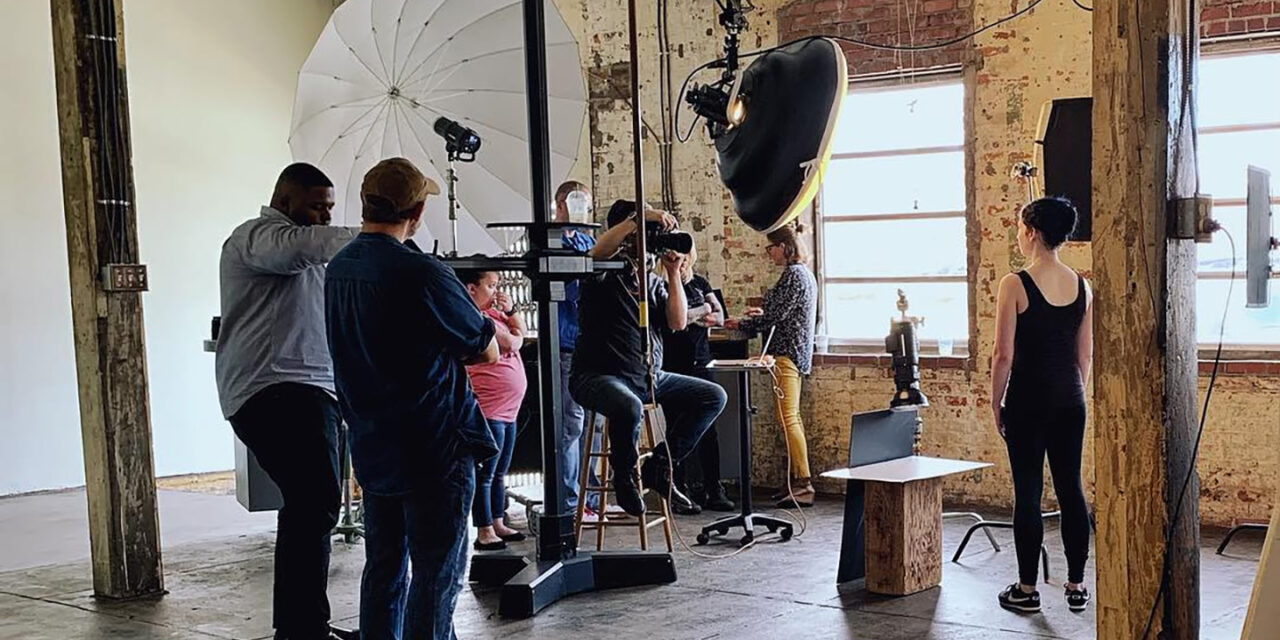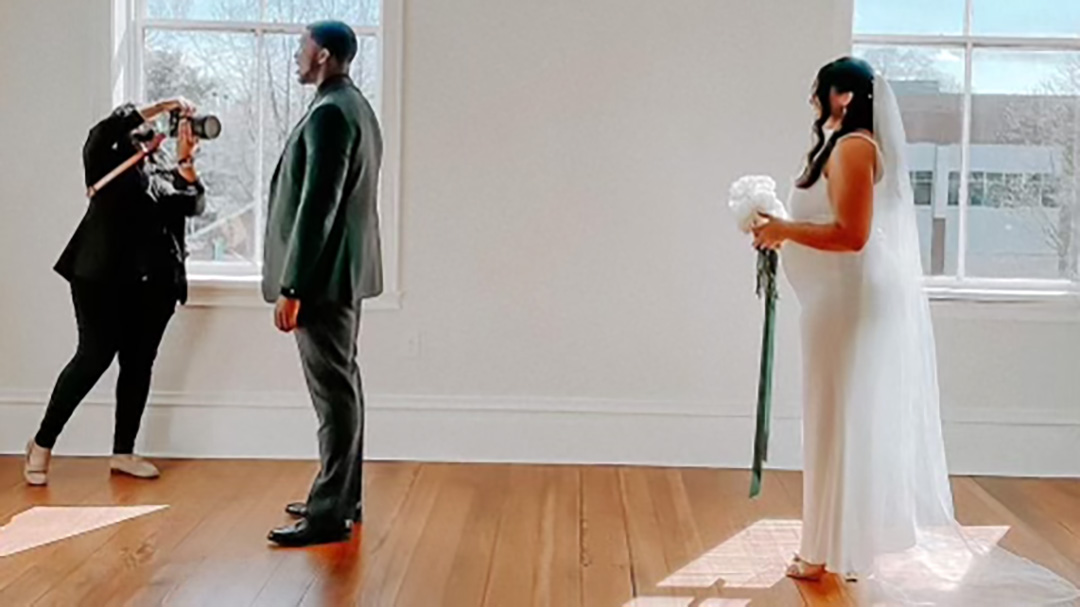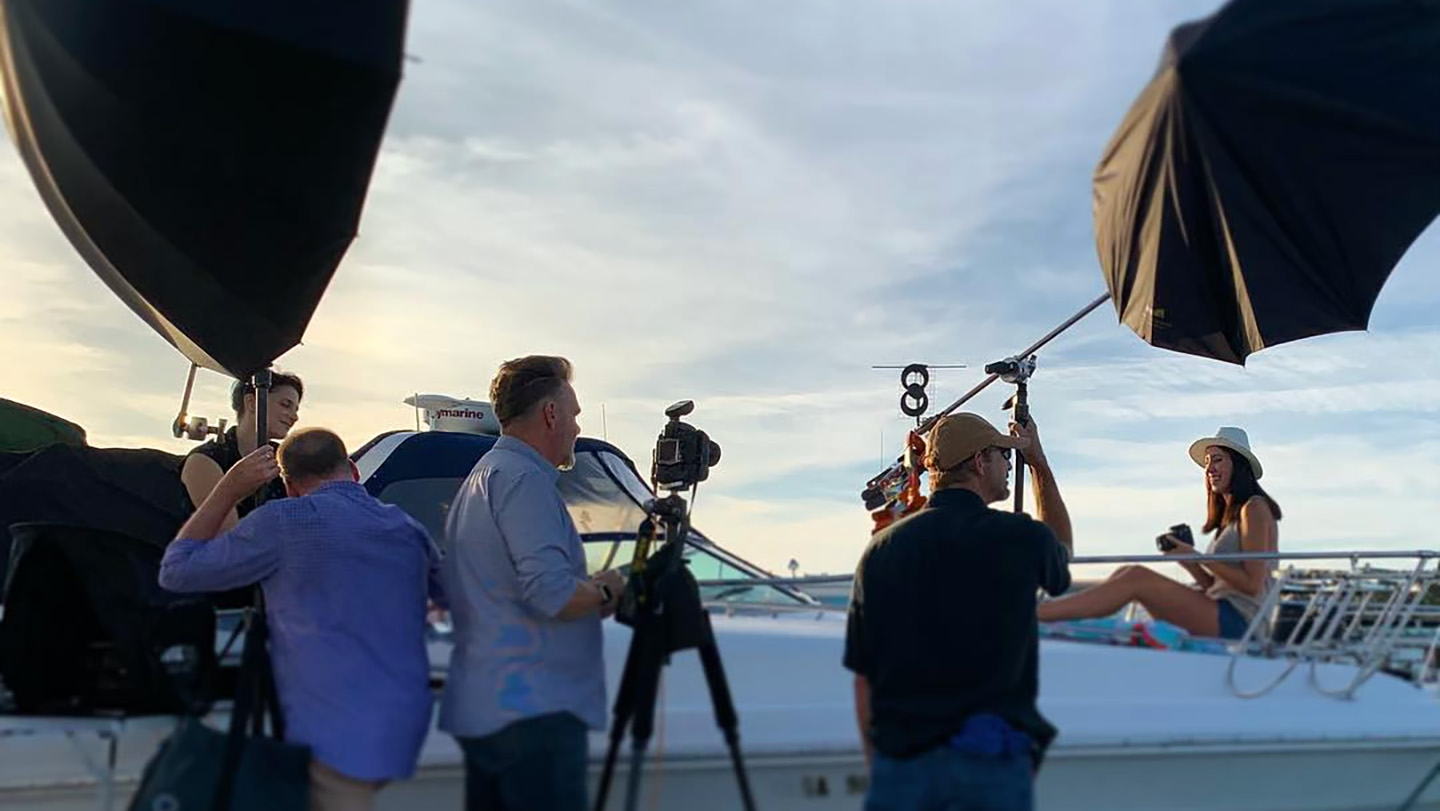Workers with George Fulton Photography stand work around the studio while capturing an image. (Photo courtesy of George Fulton/Carolina News & Reporter)
A career in photography is not something George Fulton had planned.
Sure, it had been an interest of his in high school, but he began pursuing jobs in other fields — that is, until the long hours and work weeks started to wear him down.
“I realized, ‘OK, if I’m working this hard, I would really like to be doing something that I love to do,’” Fulton said.
Fulton is not the only Columbia-based photographer who shares this sentiment.
Owners of photography businesses understand they will have slower and busier seasons based on clientele. But what makes it worth it for them, they say, is capturing the images that fulfill their creative drive.
Wedding photographer Lacie Richards began taking photos in high school.
First, it was snapping pictures of her friends. That turned into being hired to take senior portraits. Now, her passion has morphed into traveling across the country to take photos for couples.
Part of her job is just getting to know the people she is shooting, she said, making them more comfortable to be themselves.
Photographing couples during for a wedding or an engagement allows her to shoot authentically while telling a unique story, she said.
“No wedding is the same,” Richards said. “It’s always different, even if you shoot at the same venue five, 10 times, because weddings are shaped by the couple.”
Photographer Aaron Moore’s business consists primarily of commercial clientele who hire her to take portraits. She runs the business with her husband, Joshua Moore.
The two travel across South Carolina and to some larger cities, such as Chigaco and Boston, to take photos for their clients.
The key is to find something the person is interested in to help them become comfortable in front of the camera, both Richards and Aaron Moore said.
“You definitely have to kind of feel things out,” Aaron Moore said. “Sometimes when you ask people about their family, you could get the answers like, ‘Well, I just filed for divorce.’ That doesn’t really make a good impression.”
Fulton’s business, like the Moore’s, is centered on commercial photography. He often creates or stages images designed to help market or advertise a product for a company, he said.
He hires models, stylists and other photographers to help shape a scene into the perfect image. He’s always determined to find new ways to structure a photo, Fulton said.
“The image-making keeps me going,” Fulton said. “I’m always trying to create something which I haven’t created before.”
But cameras do not come cheap.
Fulton has spent $50,000 to $100,000 buying equipment over the years, he said.
“You don’t start out with that much,” Fulton said. “You know, you sort of end up accumulating it as you develop a specialty.”
Sometimes the amount needed to spend on equipment depends on the person and their interests, Richards said. She has gone from using a $200 camera to a $5,000 camera since she began.
“I’m a firm believer that your gear isn’t what makes you at the time,” Richards said. “You can have a super cheap camera body and a mid-range lens and still produce quality work.”
While cameras are central to the business, Fulton said the main expenses for him come from paying salaries and bills for his studio.
He never feels like he can rest as a freelancer because of it, he said.
“I don’t get paychecks every week,” Fulton said. “When times are good, I’m making more money. And when times are lean, I’m making less, and I’m hanging on for dear life.”
But Fulton said he believes photography is still the most financially stable career for him, despite the uncertainty. He’s built enough of a clientele to be shooting different projects each week.
Most of Richard’s customers come by word of mouth, she said. That’s because of the relationships she has built with her clients over time, Richards said.
But another important aspect to growing the business is continuing to stay updated and educated on new techniques or technologies, she said.
“I’m really big on mentorships, so finding people who have been doing it longer than I have that I really appreciate their work” matters, Richard said.
Fulton often mentors college students who are pursuing photography.
He said he wants them to understand the goal is to form a career and to not just get a job.
“If you want to go shoot, and just get jobs, you can get jobs,” Fulton said. “But one agent said to me, ‘You can either get jobs, or you can build your name.’”
Photographer Lacie Richards takes photos of a bride and groom posing for “a first look” image. (Photo courtesy of Lacie Richards/Carolina News & Reporter)
Photographer George Fulton looks into a camera during a photo shoot for one of his clients. (Photo courtesy of George Fulton/Carolina News & Reporter)




